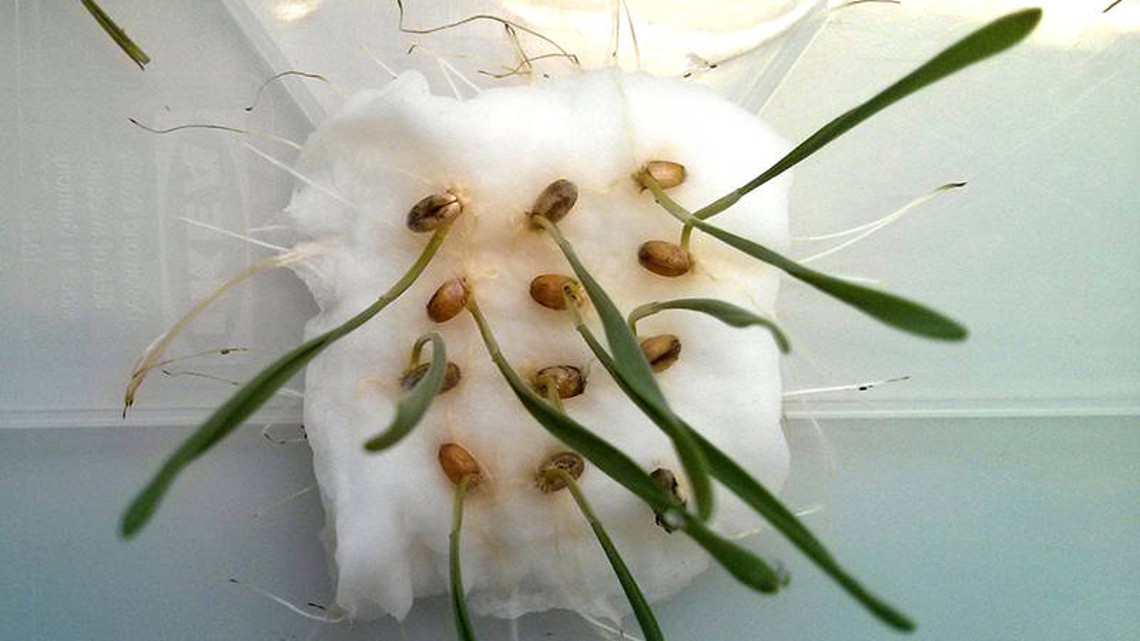Bio-based insect repellent banishes aphids
Researcher at Munich’s TU have developed a bio-based and biodegradable crop protection agent based on CBT-ol, a chemical in the leaf of the tobacco plant.

There are many reasons why insects are vanishing in alarming numbers. One reason is intensive farming and the corresponding use of synthetic crop protection agents and pesticides. For instance, the widespread use of the neonicotinoids has been shown to be hazardous to the health of bees and bumblebees. Completely swearing off pesticides, however, is not always possible either without losing too much of the crop yield. Researchers at the Technical University in Munich (TUM) now may have found a solution: in the journal "Green Chemsitry" they report a newly developed bio-based and biodegradable crop protection agent that preserves harmless and useful insects as well as the environment.
Using nature as a role model
"Without the bees that pollinate a wide variety of plants, not only would our supermarket shelves be quite bare, but within a short time, it would no longer be possible to supply the world's population with food," says Thomas Brück, who heads the Werner Siemens Chair of Synthetic Biotechnology at TU Munich.
For their novel insect repellent, Brück and his team were inspired by the leaves of the tobacco plant. The plant produces cembratrienol (CBTol) in its leaves and uses this molecule to protect itself from pests. The researchers isolated the sections of the tobacco plant genome which are responsible for the formation of the CBTol molecules. Subsequently, they built these sequences into the genome of coli bacteria. Fed with wheat bran, the genetically modified bacteria now produce the desired active agent - CBTol.
Smell banishes unwanted insects
"With our approach, we are opening the door to a fundamental change in crop protection," says Brück. "Instead of spraying poison, which inevitably also endangers useful species, we deliberately merely aggravate the pests." In essence, their biodegradable insect repellent works like a mosquito repellent: its smell keeps away unwanted insects.
Initial investigations indicate that the CBTol spray is non-toxic to insects, yet still protects against aphids. Moreover, since it is biodegradable, it does not accumulate in plants, soil, or water.
In addition, bioactivity tests showed that cembratrienol has an antibacterial effect on gram-positive bacteria. Therefore, in the future, the molecule may also be used as a disinfectant spray that acts specifically against pathogens such as Staphylococcus aureus, Streptococcus pneumoniae or Listeria monocytogenes.
jmr


